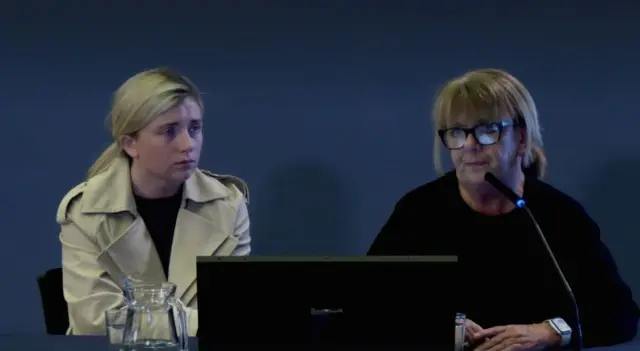For their 'strength'published at 15:58 GMT 12 February
Lord Turnbull says he is grateful to Ms Gault and Ms Taggart for their accounts of the "harrowing" events and for their strength.
He says their statements have added to the understanding of the inquiry.
